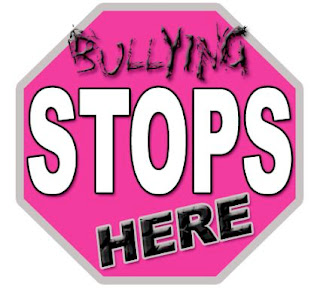This blog post will be different than others. This blog post is neither academical nor objective.
This post will be personal.
Previously, all of our blog posts includes factoids about bullying: causes, consequences, statistics. They did not delve deep inside the mind of a bully victim. They did not tell their story. Until now, it will. My story. As a former bully victim.
Tell us something about yourself
I am a Selangorean, born and bred. Fifth son of six children. The quiet one. The one who did not have anybody else to play with, always living in his own world. The naive, straight and occasionally stupid. The easy target.
Since when did the bullying started?
Probably since I was in the kindergarten.
Let's see how much I can remember. Picked on by bigger kids for wearing differently than them. Being the generally quiet one, rarely joining anybody during playtime. Also apparently the handwriting teacher has a right to pick on you just because you wrote using your left hand all the time. The fact that 8%-15% of the population are lefty seems to be foreign to her.
This continued to primary school. I cannot remember much, but I remembered that I was bullied just because of a tiny mole to the right of my nose (try to squint when you look at the above picture). Of course that is just an excuse the other kids made when they bullied me. The real reason was because I was, back then, an easy target. I was the weaker one, the one that was outside of the social circle.
I should mention here that there was no physical bullying at all, despite my skinny, scrawny physique. I was verbally harassed and socially ostracized. Yet these hurts far deeper than any punches or kicks. For a social creature like a human, nothing is worse than being alone.
How are you during these times?
As mentioned before, I was a weakling; naive, straight, stupid, introverted, neurotic. I dreaded every moment I was in school. Even a child can experience depression. I suffered chronic loneliness, always feeling helpless and not wanting to live another day any more to suffer through the same harassment from these people I called 'friends'.
Academically, there was not much effects. I scored pretty high on all subjects. However, remember that this was just primary school, and my results were compared to students of...lower standards.
So what did you do?
I did nothing. Education is compulsory, so I still went to school everyday. There are periods where I intentionally skipped schooldays, but these are few and far between, and thus inconsequential. Being insecure, I did not do anything about being bullied. Just followed what they demanded, it will go away soon. What's the worse that can happen?
I did not seek help at all. I honestly cannot remember having someone I can call a best friend during this time. Not much friends to begin with, anyway. Always the lonely one in the class. The teachers suspect nothing, nor do I told them anything. Family? I did not know why I did not just told them about it. Asian stoic culture? Not wanting to make a big fuss? Thinking it was just a small problem? Even to this day I still do not know why.
How much does these affect you as a person?
I became insecure. Such events can never be good for a child's psyche. I started to think that the whole world was against me, always finding ways to take advantage of this weak-willed kid. It did not help that this kid did not have the perfect family growing up either, but that is another unrelated story.
Now here's a funny thing about being a bully victim: you are more likely to become a bully yourself, which was what happened to me. I was a worst bully, too. Occasionally I just punched some kids younger than me, without any reason at all. I guess the psychologists were right, after all.
So what happened afterwards?
I think it started at the end of my primary education, which would be Standard Six. I finished my primary education with flying colors - 5A's for my UPSR. I did not know how I somehow gained some confidence, but the point is, I did. I entered secondary school with a new zeal for life. I started to socialize, making friends and generally being a better person.
There were still traces of my past experiences. I am still a neurotic and introverted, although I have grown by leaps and bounds in that aspect. I started to trust others, as others started to trust me. I have pretty much put all of those away, seeing it as a valuable life lesson. My life, at that point, can only get better, and it does.
Do you have any advice for a bully victim?
First of all, no matter what you may think, you are not alone. There are always someone who are ready to lend an ear or two. Do not be afraid to reach them. Do not make the same mistake as I did.
Secondly, do not be afraid. Those kids that picked on you? They were only compensating for their own insecurities. They need to feel a sense of power, and they show it by being dominating. By dominating you. Do not give in to what they wanted, because that will only encourage them to continue what they are doing.
Finally, I can tell you the most important thing: it gets better. No matter what you have been through, you are much stronger than you thought. Things that you are currently going through are what makes you stronger for the future. Do not be overcome by all the hardships that befalls you. Seek help and guidance, you need all the help you can get.
Trust me.
MUHAMMAD NURUDDIN BIN WAN MOHD GHAZALLI A132131













